Home

Pregnancy Journey

Foot Pain During Pregnancy: Your Guide to Reasons and Remedies
In this Article

Pregnancy Journey
Foot Pain During Pregnancy: Your Guide to Reasons and Remedies
Updated on 3 April 2024
Pregnancy is a journey where an expecting mother learns to eat, care and walk for two. As you grow a life within, you carry the extra weight of a baby and the responsibilities that come with it. It’s no wonder why you may experience foot pain during pregnancy. But don’t worry, this article will help you understand the causes and cures for feet pain during pregnancy.
Is it normal to experience foot pain during early pregnancy?
As you step into the shoes of an expecting mother, it’s not uncommon to experience foot pain even early in the pregnancy. This happens because of the hormonal changes happening in your body during pregnancy. Certain pregnancy hormones cause the ligaments, joints and tendons to relax, which can bring about changes in the arch of your foot and lead to foot pain in the early stages of pregnancy.
What are the reasons for feet pain during pregnancy?
Besides feeling pain in your feet during the early pregnancy, you may also experience it throughout your pregnancy. Some of the causes include:
1. Weight gain
One of the most obvious reasons for foot ache is the additional weight gain during pregnancy. As you progress to the second and third trimester of pregnancy, you and your baby gain weight which puts extra pressure on your feet and causes them to ache.
2. Hormonal changes
As mentioned before, a lot of hormonal changes take place inside a pregnant woman’s body. Pregnancy hormones like relaxin can cause the ligaments, joints and tendons in your feet to loosen up, leading to discomfort and pain in the feet.
3. Water retention (edema)
You may also experience water retention during pregnancy, which leads to edema or swelling in the legs and feet. Because of the fluid retention, your ankles and feet may hurt and appear swollen.
4. Flat feet
Pregnancy can also lead to overpronation or flattening of the feet due to additional weight and pressure. This can also be one of the reasons for foot pain during pregnancy.
5. Postural changes
During pregnancy your centre of gravity shifts, which causes changes in your posture, gait and walking style. As your feet adapt to these changes and bear the additional weight, they may experience pain and discomfort.
6. Improper shoes
If you stick to your pre-pregnancy shoes despite the feet size going up or wear uncomfortable shoes, you may develop bunions and pain in the ball of the feet. Squeezing your swollen feet in shoes that lack cushioning or support can also add to the pain.
You may also like: Swelling During Pregnancy: Causes & Warning Signs & Symptoms
How to relieve foot pain during pregnancy?
There are many reasons that may contribute to your pain, but there are just as many solutions to alleviate your pain as well. Some ways to relieve foot pain during pregnancy include:
1. Upgrade your shoe collection
As you make changes to your maternity wardrobe, it’s also a good time to upgrade your shoe collection. It’s not uncommon for pregnant women to change shoe sizes several times during pregnancy, so ensure that your shoes are of the right size. Ditch those stilettoes and strappy heels for some time and invest in a few pairs of comfortable shoes and sandals with proper arch support and cushioning.
2. Elevate your feet
Elevating your feet while resting can help bring back the blood flow to your feet and legs and help alleviate the discomfort, swelling and pain. You can use a footrest to elevate your feet while sitting for long hours and prop them against the wall or arch of the bed to elevate them while lying down.
3. Indulge in foot massages
There’s nothing a relaxing massage can’t cure. So, when your feet start to ache, get a gentle foot massage. You can also use an Ayurvedic pain relief oil to massage your feet as it can help alleviate the pain and enhance the experience.
4. Engage in foot exercises
Practicing regular foot exercises like ankle circles or toe stretches can also improve blood circulation in your legs and feet, relieve tension and enhance flexibility. This, in turn, will help reduce the pain in your feet and ankles.
5. Try to stay active
Besides engaging in foot stretches and exercises, you should also remain active throughout your pregnancy until advised otherwise by your doctor. Walking, Yoga and swimming are some safe exercises that you can practice during pregnancy to improve your blood circulation and reduce foot and body aches.
6. Apply ice packs
For instant relief from pain, you can also apply cold compress or ice packs on your feet and ankles as they help to numb the pain and reduce swelling. Alternatively, soaking the feet in ice water may also provide some relief.
7. Increase your fluid intake
To prevent foot pain from arising due to water retention, you should increase your fluid or water intake. Try to drink at least 12-15 glasses of water to stay hydrated throughout the day and reduce swelling in the feet.
8. Take care of your feet
You should also practice proper foot care by trimming your nails regularly, keeping the feet clean and dry and not wearing tight or restrictive footwear. If you like to apply nail paints (provided you can still reach your toes!), then make sure to use a nail paint free from harmful chemicals.
You may also like: Leg Swelling in Pregnancy
Steps for foot massage during pregnancy to alleviate your pain
Foot massage pregnancy can be a great way to relax your tense muscles, improve circulation and relieve your foot pain. Assuming you’ve received a green light from your gynecologist, here are some steps to follow for a safe and relaxing foot massage session during pregnancy:
1. Set up the environment
First, find a comfortable place where you can sit and relax uninterrupted. You can use some cushions or pillows to support your back and feet. Gather all the supplies you’ll need such as a massage oil and a soft towel or wipes to remove the excess oil after the massage.
2. Start with gentle stretches
Before beginning the massage, it’s recommended to stretch your legs and feet gently. This will help warm up the muscles. You can either flex and point your toes or rotate your ankles in circular motions.
3. Apply an oil or lotion
Make sure to choose a natural or Ayurvedic massage oil that’s safe for use during pregnancy like the Mylo Ayurvedic Pain Relief Oil, which is enriched with natural pain relievers like ginger, garlic, neem oil and camphor. Then, warm the oil and pour a small amount onto your palms. Apply it all over your feet or the pain points.
4. Gently massage the feet
Then, begin the massage with light strokes using your fingertips and thumbs. You can start at the toes and work your way to the heels and ankles in circular motions. You can apply some extra pressure to the pressure points like the arch, heel and ball of the foot.
5. Use kneading and rolling motions
You can also make use of your palms or thumbs to knead the muscles of your feet in circular, rolling motions. Alternatively, you can make use of a tennis ball or massage roller to roll your foot back and forth on it. This can help relieve the tension in the soles.
6. Finish with relaxing strokes
Spend at least a few minutes on each foot to ensure you have covered all the areas. Finally, finish the massage with light, soothing strokes to relax the muscles. You may also put your feet on a cushion or pillow and keep them elevated for a few minutes. Before getting up, make sure to wipe off the excess oil.
Final Thoughts
As your feet walk for two in this journey, it’s normal to experience foot pain during pregnancy. With some precautions and extra care, you can easily manage and alleviate the pain and tension in your feet. However, if the pain persists or becomes unmanageable, it might be best to consult your gynecologist or a specialist to identify the root cause and suggest appropriate treatment. Until then, wobble your way to the due date!
References
1. Varol T, Göker A, Cezayirli E, Özgür S, Tuç Yücel A. (2017). Relation between foot pain and plantar pressure in pregnancy. Turk J Med Sci.
2. Gianakos AL, Abdelmoneim A, Kerkhoffs GM, DiGiovanni CW. (2022). The Pregnant Patient - Why Do My Feet Hurt? J Foot Ankle Surg.
3. Letompa S, Khanyile L, Mathivha T, Purbhoo M. (2023). Foot health status in pregnant women. Foot (Edinb).
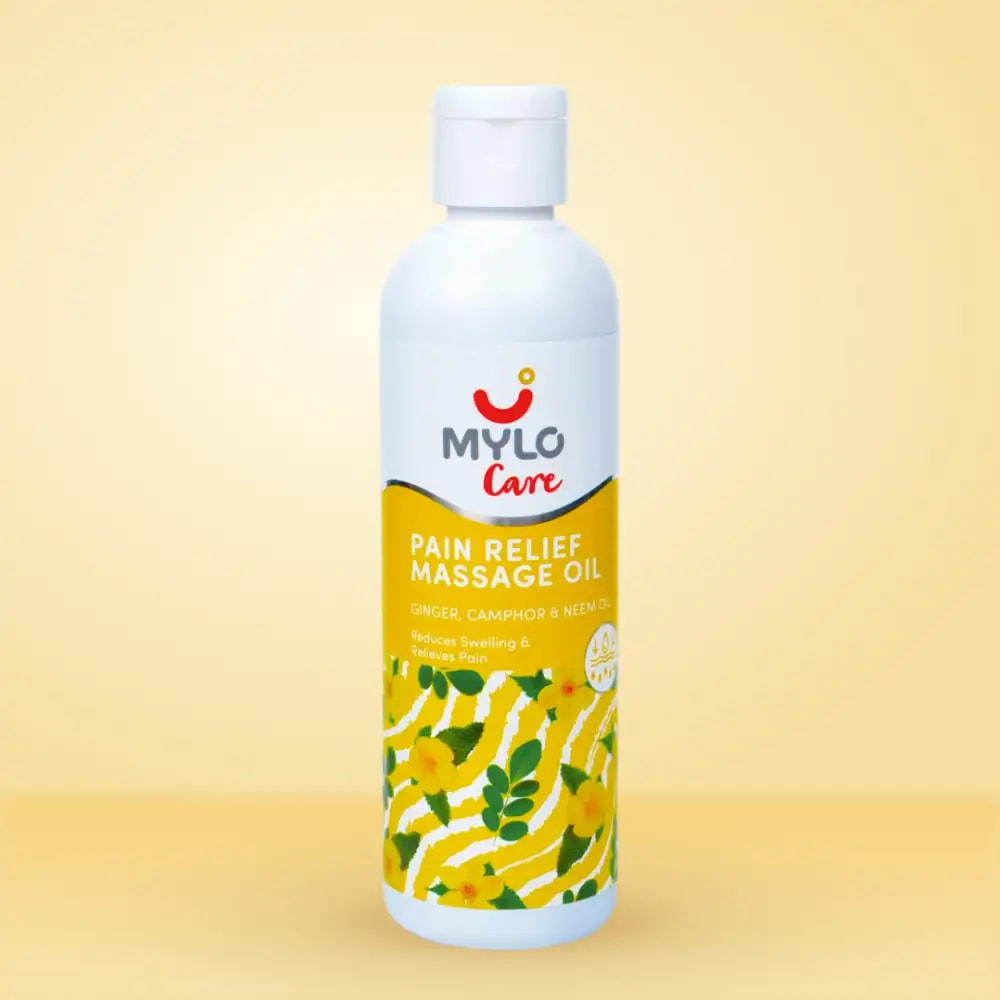
Ayurvedic Pain Relief Massage Oil - 200 ml
Relieves Pain | Reduces Swelling | Remedy for Cold & Cough
₹ 599

4.3
(494)


2867 Users bought



Written by
Anupama Chadha
Anupama Chadha, born and raised in Delhi is a content writer who has written extensively for industries such as HR, Healthcare, Finance, Retail and Tech.
Read MoreGet baby's diet chart, and growth tips

Related Articles
Top 100 Baby Names for Boys and Girls 2026 Edition: The Ultimate Trending & Meaningful Name Guide
The Ultimate Guide to the Best Romantic Web Series on OTT for Couples
Best Indian Crime Web Series Based on True Stories: The Ultimate Binge-Watch Guide (2026)
Dark & Suspenseful OTT Shows You Can’t Stop Watching: The 2026 Binge List
Related Questions
Hello frnds..still no pain...doctor said head fix nhi hua hai..bt vagina me pain hai aur back pain bhi... anyone having same issues??

Kon kon c chije aisi hai jo pregnancy mei gas acidity jalan karti hain... Koi btayega plz bcz mujhe aksar khane ke baad hi samagh aata hai ki is chij se gas acidity jalan ho gyi hai. Please share your knowledge

I am 13 week pregnancy. Anyone having Storione-xt tablet. It better to have morning or night ???

Hlo to be moms....i hv a query...in my 9.5 wk i feel body joint pain like in ankle, knee, wrist, shoulder, toes....pain intensity is high...i cnt sleep....what should i do pls help....cn i cosult my doc.

Influenza and boostrix injection kisiko laga hai kya 8 month pregnancy me and q lagta hai ye plz reply me

Related Topics
RECENTLY PUBLISHED ARTICLES
our most recent articles
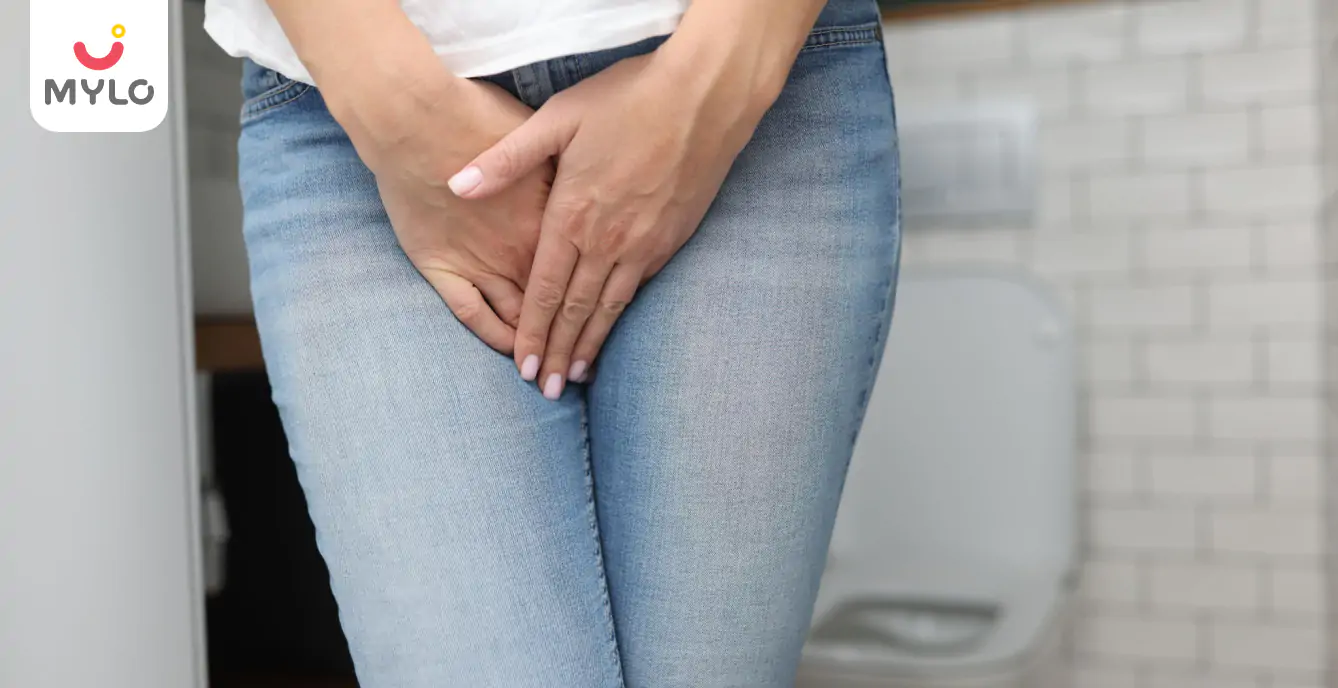
Vaginal Discharge
Brown Discharge During Early Pregnancy: Understanding the Causes & Next Steps
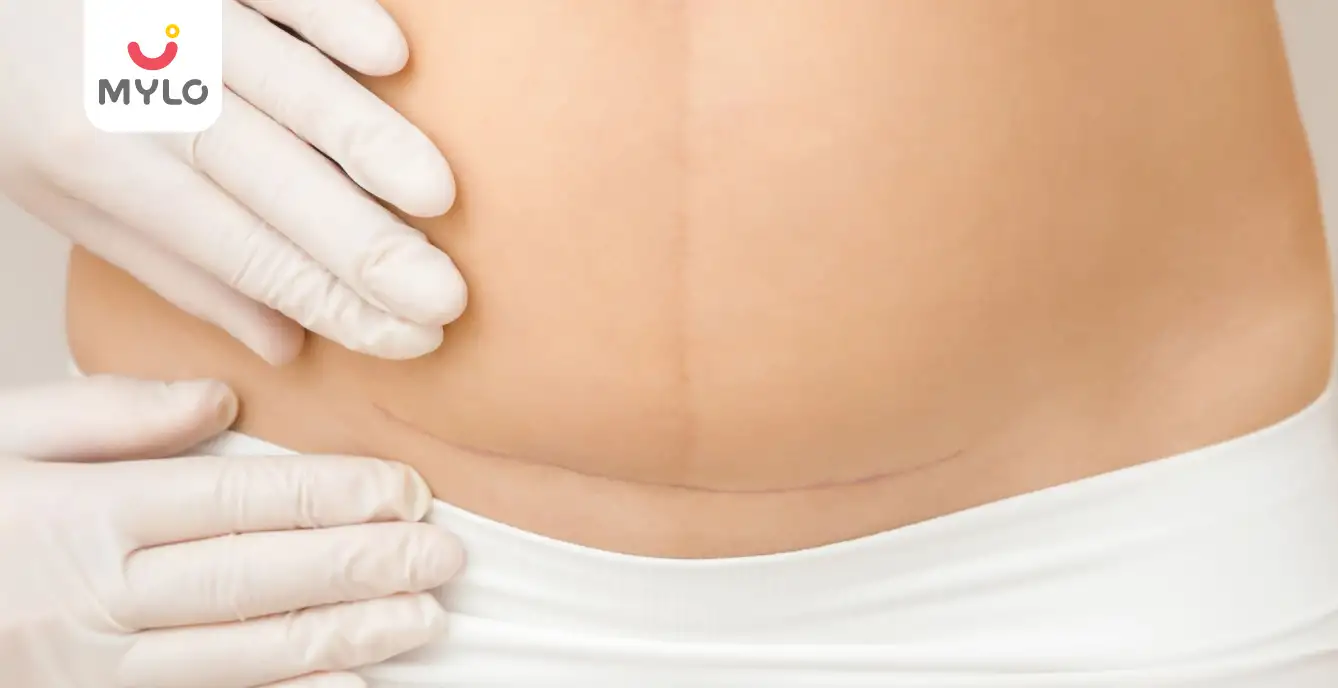
When Can I Start Bending After C-Section: Expert Insights on C-Section Recovery

Miscarriage
18 Foods That Can Cause Miscarriage: A Guide to Avoiding Harmful Foods
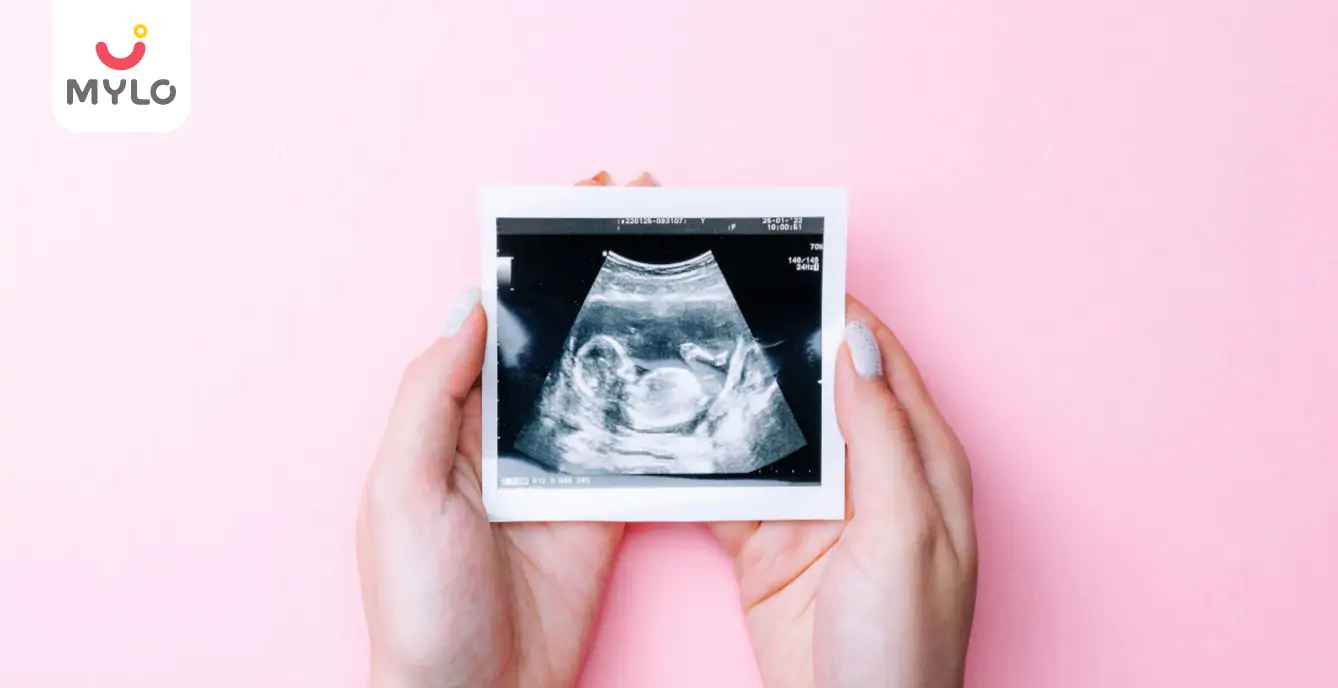
9 Week Ultrasound: What to Expect & What are the Red Signals?
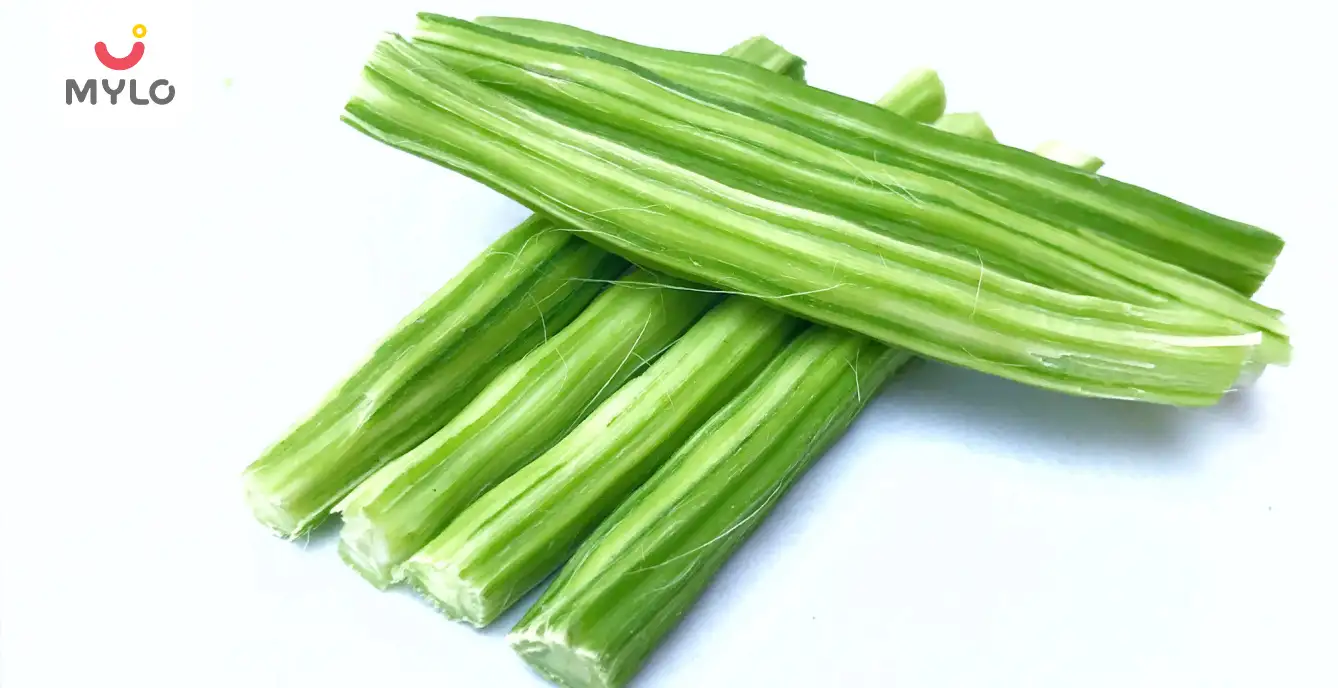
Drumstick During Pregnancy: The Ultimate Guide to Benefits & Side Effects
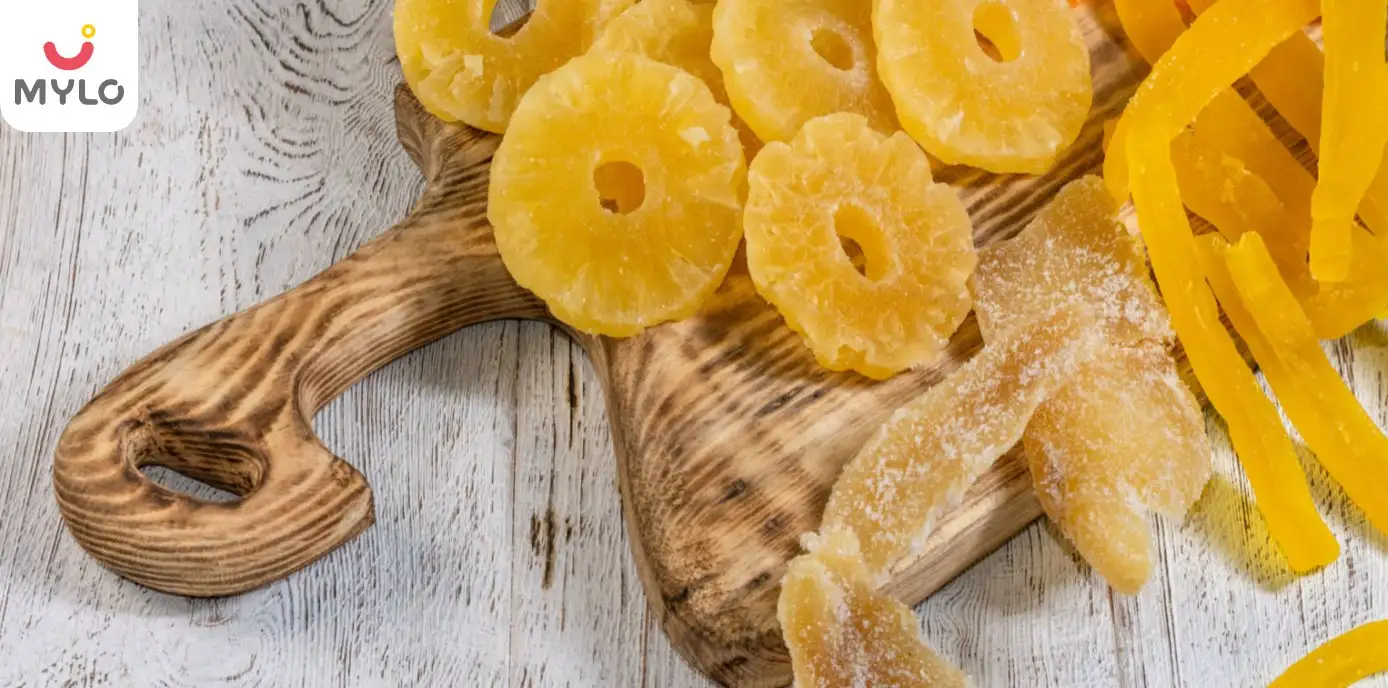
Abortion
How to Avoid Pregnancy After Missing Period Naturally?
- 1st Birthday Wishes for Nephew and Niece That Tug at the Heart
- The Ultimate Collection of Baby Boy Names in Telugu
- Navel Displacement: The Ultimate Guide to Causes, Symptoms & Treatment
- Top 10 Thriller Movies on Hotstar for Edge-of-Your-Seat Excitement
- 10 Best Pakistani Dramas of All Time
- Ear Infection During Pregnancy: Understanding the Risks and Remedies
- Freezing Sperm: Preserving the Possibility of Parenthood
- The Ultimate Guide to Ghee Massage for Babies
- Sunflower Seeds in Pregnancy: Advantages, Risks, & Recipes
- The Ultimate Guide on Cabbage During Pregnancy Benefits and Precautions
- Double Marker Test: Everything You Need to Know for a Healthy Pregnancy
- The Pros and Cons of Consuming Brinjal in Pregnancy
- Why You Should Consider Drinking Coconut Water During Pregnancy?
- Sneezing During Pregnancy: Causes, Risks and Treatment


AWARDS AND RECOGNITION

Mylo wins Forbes D2C Disruptor award

Mylo wins The Economic Times Promising Brands 2022
AS SEEN IN

- Mylo Care: Effective and science-backed personal care and wellness solutions for a joyful you.
- Mylo Baby: Science-backed, gentle and effective personal care & hygiene range for your little one.
- Mylo Community: Trusted and empathetic community of 10mn+ parents and experts.
Product Categories
baby carrier | baby soap | baby wipes | stretch marks cream | baby cream | baby shampoo | baby massage oil | baby hair oil | stretch marks oil | baby body wash | baby powder | baby lotion | diaper rash cream | newborn diapers | teether | baby kajal | baby diapers | cloth diapers |




